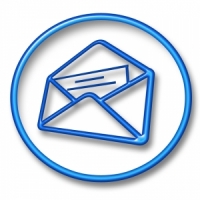Leverage Emails as Your Ambassadors

We are often communicating with people we have never met in person. In these cases, the readers know our personalities only through our emails.
When email communication is so important that it can make or break your professional reputation and the consequences can be quite adverse, why not seriously look at using emails as your ambassadors? Once you get into this mindset, it becomes simpler to send effective emails because you are conscious that every time you hit Send, an “ambassador” has gone out on your behalf.
Obviously, just this shift in thinking will not do the trick in its entirety. Due diligence is required to ensure we understand what it takes to send good emails. This has been a much-discussed topic, ever since email communication became prevalent—there are a number of posts on what it takes to write good emails.
There are also several posts that talk about what makes bad emails. One such recent post focuses on a simple point: The reader is always busy. If you keep that in mind, you’ll be sure to get your points across in your emails concisely and effectively.
While these lists are fairly exhaustive, there is no silver bullet that can be applied to all situations at all times. You may be writing emails to a variety of people, such as to your executive management communicating very important statuses, to your team giving them detailed instructions on what to work on, to your clients giving them a resolution to an issue, and so on. Your primary way of working could be that you leverage emails to build a marketing strategy. While the exhaustive list can serve as an overall guideline, each individual needs to have custom guidelines on how to write in each of these scenarios.
In my organization, where we work remotely and communicate with several clients day in and day out, besides overall guiding principles on effective email writing, I also take the time to cover this topic in my regular companywide meetings. I show examples of good emails and not-so-good emails and highlight emails that have received customer appreciation. The goal is to convey completeness, accuracy, transparency, diplomacy, tactfulness, timeliness, preciseness, target audience relevance, proactiveness, and adding value.
A well-written email can cover all of these attributes, giving a good face to the sender, his team, his department, and his organization if it stands out among the many emails a client receives each day. So, if you have not thought of your emails as your ambassadors so far, take that first step today and you will see a noticeable difference in how they are received and acted upon.

